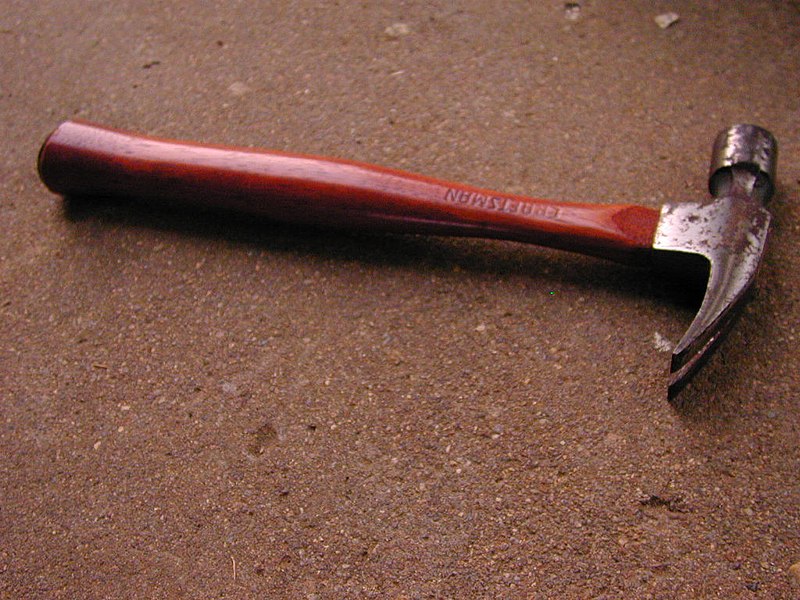The good news: misconceptions can be a great jumping off point for developing understanding! The bad news: it's fiendishly difficult to change people's minds once they have learned something wrong.
An example: Heavy things do not fall faster than light things.
I know, I know...you're thinking, "C'mon, Dave...don't be ridiculous! If I drop a bowling ball and a feather, the heavy bowling ball is going to hit the ground before the light-weight feather. Every. Single. Time."
I will concede, you're right, in this case.
But it's not because the feather is lighter.
Really!
My middle school students never believed me either. Here's how I tried to convince them...
- Take a sheet of notebook paper and a large, heavy book (like a science textbook.)
- Hold them out in front of you, one in each hand.
- Let them drop to the floor.
Duh...the textbook!
Right. Okay, next step:
- Set the paper on top of the textbook.
- Hold them out in front of you.
- Let them drop to the floor.
What happened?
The paper "sticks" to the textbook and they fall at the same speed.
Right. Only the paper didn't really "stick" to the textbook...the textbook was just making it easier for the paper to fall by "blocking the wind." Because that's the real issue with "light" things--they generally have greater air resistance, which means the tend to float or flutter rather than just crashing to the floor.
Okay, the next thing:
- Crumple the paper into a tight little wad.
- Hold the crumpled paper and the book out in front of you, one in each hand.
- Let them drop to the floor.
What happened this time?
They fall at the same speed!
Yep. Crumpling the paper doesn't change the weight of the paper, but it changes the surface area. When it's more compact (crumpled), the paper has less air resistance, and it falls at the same speed as the book.
--
This was usually enough to get some kids to start nodding along. They were starting to believe it: everything actually falls at the same speed here on Planet Earth.
But there were always some skeptics. On with the show...
I would next take out a shot put (which weighed a few pounds) and a softball (which weighed a few ounces). The key is that they were mighty close to the same size.
I would hand the pair of spheres to one of my skeptics and ask them which was heavier. The kid almost always gave me a "duh-Mr.-Mulder-are-you-for-real?" look. I would ask which one would hit the floor first. The kid--no fool, knowing the "right" answer I was going for--would say:
They'll hit the ground at the same time.
But the look on the kid's face was always one of smirking doubt.
"Okay, drop them."
And the kid's smirking doubt would melt into surprise as the balls hit the floor at the same time.
Hang on a minute...let me try that again!
Sure kid...go ahead. Drop them as many times as you need to.
Well, it's just because they are so close to the floor. What if we drop them from way up high?
Great idea! Let's get the ladder!
We would set up the custodian's 12-foot ladder and drop them from the top, about 15 feet in the air.
NO. WAY!! They still hit the ground at the same time!
Yes. Yes, they do.
---
By this time, all but the serious die-hard skeptics were on board. Most were willing to at least conceive of the idea that what they previously believed to be true ("heavy things fall faster than light things") might not actually be the case.
But the problem is that it's fiendishly difficult to change people's minds once they have learned something wrong.
 |
| Image from Wikimedia Commons CC BY-SA 2.0 |
If I hold a hammer horizontally and drop it, which end will hit the ground first?
Almost every one of them would say the heavy metal head of the hammer would hit the ground before the lighter wooden handle.
So we tried it, of course.
I'd hand a hammer to one of the kids. "Hold the hammer horizontally out in front of you and let it drop."
And the class was thunderstruck when it falls--horizontally!--to the ground.
We would try dropping the hammer in all different ways ("If you drop it handle-side down, will it rotate in the air?" No.) and from various heights ("If we drop it from 15 feet in the air, will it rotate on the way down?" No.)
Heavy things do NOT fall faster than light things!
---
Check out this amazing video from the folks at Mental Floss. (An aside: I love Mental Floss. You should subscribe to this magazine. Or at least check out their awesome stuff online.) 50 science misconceptions in a 7-minute video. How many of these did you believe to be true?
Most adults have misconceptions too. Even science teachers. It's hard not to...these ideas seem to make sense on some level. And if they are workable explanations, why should we change our thinking?
That's the key for the teacher: use the misconception as a jumping-off point for developing a truer understanding.
No comments:
Post a Comment